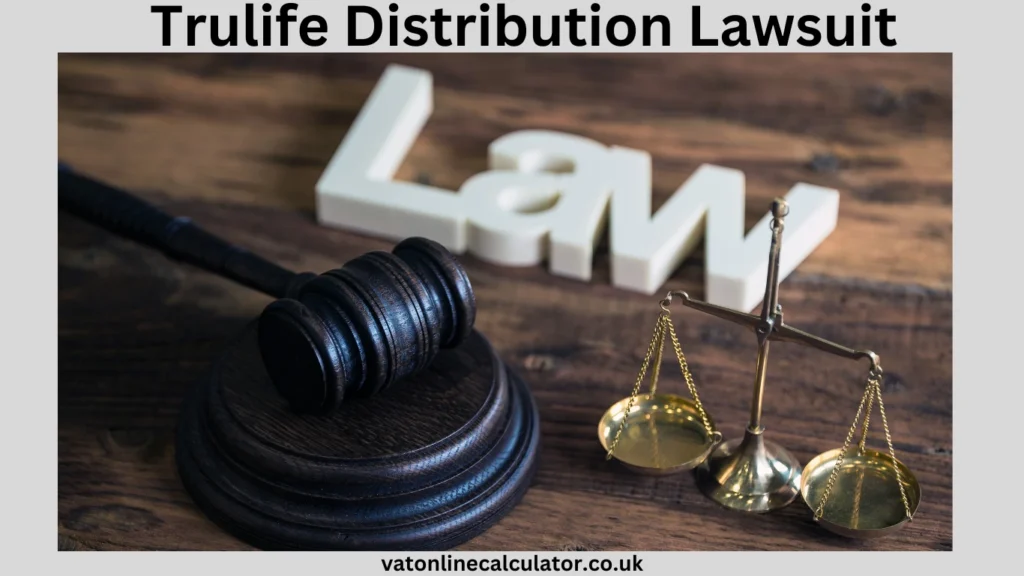Trulife Distribution, a leader in the distribution sector, has been in the spotlight recently due to a lawsuit questioning its business practices. While the company has built a strong reputation over the years, this legal battle has raised concerns about its operations and broader implications for the distribution industry. In this article, we will explore the details of the lawsuit, its potential consequences, and how it could affect stakeholders and the sector as a whole.
Rise of Trulife Distribution
From Humble Beginnings to Industry Leader
Trulife Distribution started as a small venture aimed at providing quality logistics and distribution services to businesses. Over time, its innovative strategies and efficient operations allowed it to expand into multiple industries, including retail, healthcare, and consumer goods. By leveraging cutting-edge technology and reliable supply chain methods, the company gained a reputation for excellence.
Challenges Along the Way
Despite its success, it has faced challenges, including disputes over delivery delays and contract issues. While these incidents were resolved without major setbacks, they hinted at the complexities of managing large-scale operations. However, the current lawsuit has brought more significant concerns into focus, threatening to overshadow its achievements.
Understanding the Lawsuit
What Led to the Legal Action?
The lawsuit against the company stems from allegations of unethical practices, including breach of contract and misrepresentation. Former clients and business partners have accused it of failing to meet contractual obligations, leading to financial losses. These claims have sparked widespread discussions about the company’s internal processes and transparency.
Core Allegations
The plaintiffs argue that it knowingly provided false information to secure contracts. Other accusations include delays in delivering promised services and a lack of clear communication. These allegations, if proven, could significantly harm its reputation and raise questions about the ethical standards within the distribution sector.
Company’s Defense and Legal Proceedings
Response to the Allegations
Trulife Distribution has denied all claims, stating that the accusations are baseless and lack concrete evidence. In official statements, the company has emphasized its commitment to ethical business practices and transparency. Legal representatives have vowed to defend its reputation, arguing that the plaintiffs have exaggerated their claims.
Developments in the Case
The lawsuit has already seen preliminary hearings and the exchange of evidence between the parties. Experts predict a lengthy legal battle as both sides present their arguments. The outcome of this case could have lasting effects, not just for the company but for the entire distribution industry.

Broader Impact of the Lawsuit
Consequences for the Company
The lawsuit poses significant challenges, including financial strain due to legal fees and potential settlements. Negative publicity has also emerged as a major concern, potentially eroding customer trust and loyalty. If the allegations are proven, the fallout could affect its market position and partnerships.
Industry-Wide Implications
This legal case has prompted discussions about the need for stricter oversight in the distribution sector. It may lead to the development of new regulations to ensure transparency and accountability among companies. Competitors in the industry may also face increased scrutiny as a result.
Consumer Concerns
For consumers, the lawsuit has sparked worries about service reliability and product availability. If its operations are disrupted, supply chain delays could occur, affecting end-users. The case also highlights the importance of holding companies accountable, which could lead to greater consumer advocacy.
Lessons for the Business World
The Trulife Distribution lawsuit serves as a reminder of the importance of ethical practices and robust compliance measures. Companies must prioritize transparency and accountability to build trust with stakeholders. This case also underscores the need for clear contracts and effective communication to avoid legal disputes. For businesses in the distribution sector, it’s a wake-up call to reassess their processes and ensure they meet the highest standards of integrity.
Industry Perspectives
Legal and business experts have weighed in on the case, offering varied opinions. Some believe the allegations, if substantiated, could set a precedent for holding distribution companies accountable. Others argue that a strong defense could expose flaws in the plaintiffs’ claims, potentially clearing the company’s name. Regardless of the outcome, the case highlights the growing importance of ethical conduct in maintaining a competitive edge.
Table: Key Allegations and Responses
| Allegation | Company’s Response |
| Misrepresentation in securing contracts | Denied, claiming evidence lacks merit. |
| Breach of contract | Stated that obligations were met as per agreement terms. |
| Delays in service delivery | Acknowledged minor delays but argued they did not breach contracts. |
| Lack of transparency | Reiterated commitment to clear communication and accountability. |
Frequently Asked Questions
What is Trulife Distribution?
It is a prominent company specializing in logistics and distribution services across various industries, including retail and healthcare.
What are the allegations in the lawsuit?
The lawsuit includes claims of breach of contract, misrepresentation, and service delays, all of which the company denies.
Has it faced lawsuits before?
While it has encountered minor disputes in the past, this lawsuit is its most significant legal challenge to date.
How has the company responded to the allegations?
It has denied the claims, emphasizing its commitment to ethical practices and transparency while promising a strong legal defense.
What could this lawsuit mean for the industry?
The case could lead to stricter regulations and increased scrutiny of distribution practices, impacting competitors and industry standards.
Conclusion
The Trulife Distribution lawsuit marks a critical juncture for the company and the broader distribution sector. While the allegations and ongoing legal proceedings have cast a shadow on its reputation, they also serve as a valuable lesson for businesses about the importance of transparency and ethical practices. As the case unfolds, stakeholders will closely monitor the developments, drawing insights that could shape the future of the industry. Regardless of the outcome, this lawsuit underscores the need for accountability and integrity in building lasting trust and credibility in business.
Also, Read Redwebzzine.org: Where Knowledge Meets Creativity
